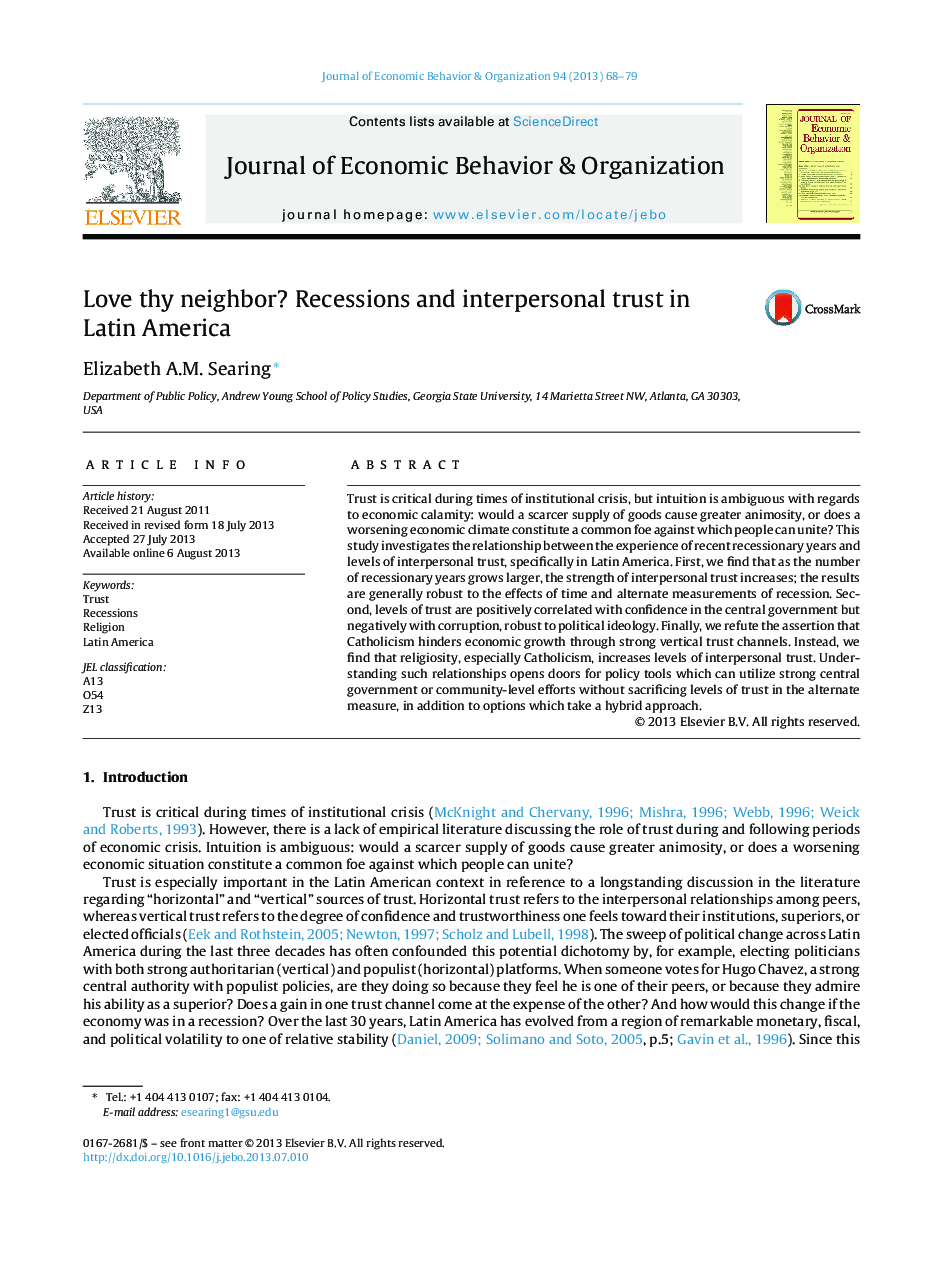| Article ID | Journal | Published Year | Pages | File Type |
|---|---|---|---|---|
| 7243650 | Journal of Economic Behavior & Organization | 2013 | 12 Pages |
Abstract
Trust is critical during times of institutional crisis, but intuition is ambiguous with regards to economic calamity: would a scarcer supply of goods cause greater animosity, or does a worsening economic climate constitute a common foe against which people can unite? This study investigates the relationship between the experience of recent recessionary years and levels of interpersonal trust, specifically in Latin America. First, we find that as the number of recessionary years grows larger, the strength of interpersonal trust increases; the results are generally robust to the effects of time and alternate measurements of recession. Second, levels of trust are positively correlated with confidence in the central government but negatively with corruption, robust to political ideology. Finally, we refute the assertion that Catholicism hinders economic growth through strong vertical trust channels. Instead, we find that religiosity, especially Catholicism, increases levels of interpersonal trust. Understanding such relationships opens doors for policy tools which can utilize strong central government or community-level efforts without sacrificing levels of trust in the alternate measure, in addition to options which take a hybrid approach.
Related Topics
Social Sciences and Humanities
Economics, Econometrics and Finance
Economics and Econometrics
Authors
Elizabeth A.M. Searing,
